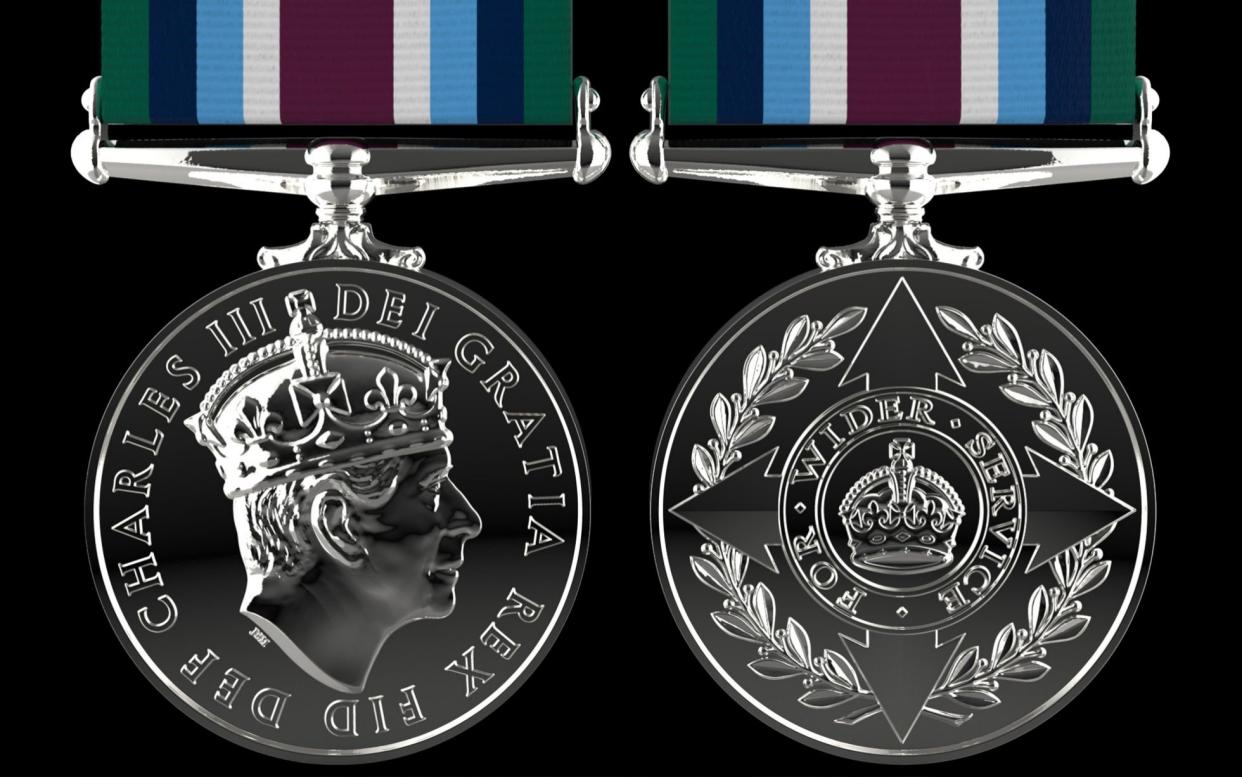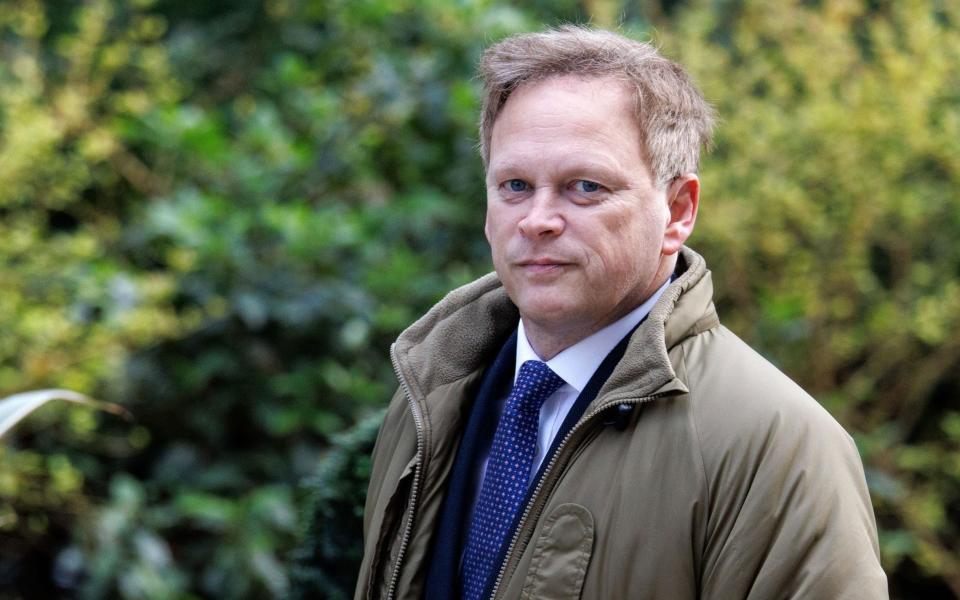New medal for troops to recognise ‘unsung’ achievements

A new medal for troops will consider a broader range of “unsung” achievements rather than marking only “risk and rigour”.
The Wider Service Medal will recognise personnel across all three forces who are increasingly deployed but do not experience the significant physical risk to life that is traditionally required for an operational medal.
The announcement comes after Ben Wallace, the former defence secretary, accused the Ministry of Defence of letting troops down over the medal, which has been six years in the making.
Mr Wallace, who served as defence secretary from 2019 to 2023, said he signed off on the medal while he was still in office and accused “somebody in the system” of “blocking” what he had decided.
However, a source close to Grant Shapps, the Defence Secretary, said while the medal “has been talked about for some time” he had “grasped the issue and made it happen”.
Writing for The Telegraph, Mr Shapps said: “Defence is not just about firing missiles, dropping bombs or storming trenches, sometimes it’s about holding the line.”
He cited as examples the pilots of Typhoon fighter jets who patrol Estonian skies, crews in nuclear submarines and troops in “sub-zero forests” who spend long periods away from home – but have until now not been awarded medallic recognition for their efforts.
“In the past, such service to the King and country was left unsung,” Mr Shapps said.
“No longer. With His Majesty the King’s gracious approval, we have now expanded the scope of operational medals and today I can announce the introduction of a new Wider Service Medal.
“It will be a just reward for those who might not have faced the same level of physical risk as others but who have put in a remarkable stint of 180 days or more on vital operations.”
Ever-changing nature of warfare
The design of the medal includes a ribbon consisting of a central stripe of purple with four narrow stripes on either side, coloured in order from the centre outwards white, light blue, dark blue and green.
The purple colour on the ribbon reflects the nature of operations, the green for those on land, the dark blue for those at sea and the light blue for those in the air.
The medal includes a Tudor Crown, which symbolises the sovereign, Armed Forces and civil service, directional arrows, suggesting reaching out around the world, and the Laurel Wreath, which is symbolic of service and achievement.
The move has been made to recognise the ever-changing nature of warfare and ensure that those fulfilling crucial roles can receive medallic recognition.

Criteria for the medals will include operational activity where there is evidence it contributed to the UK’s objectives.
The candidate for the medal must also have accrued 180 days’ aggregated service on eligible operations.
Subsequent service of 180 days will result in the award of a bar to the medal, up to a maximum of three bars.
The operations currently being considered for the medal include Royal Navy personnel serving on the UK’s continuous at sea Nuclear Deterrent, as well as those taking part in maritime activity in the Middle East, Army personnel deployed as part of the UK’s reassurance to the people of Estonia, and RAF pilots and supporting ground crew deployed to Estonia and Romania as part of the UK’s commitment to the Nato Air Policing patrol.
It is understood that eligibility for the medal will be retrospective and date back to December 2018 for ongoing operations.
It’s high time these remarkable men and women got the recognition they deserve
By Grant Shapps, Defence Secretary
Barely two weeks after I joined the Ministry of Defence, one of our nuclear submarines sailed back to base.
The crew of this Vanguard-class boat had been away from home patrolling the sea to deter our enemies.
I’ve discovered such feats of dedication are par for the course in Defence.
Just a few weeks before I started, I learned of the Typhoon fighter jet crews that had finished a four-month stint policing Estonian skies.
During that time they intercepted 50 Russian aircraft and flew more than 500 hours.
And as I write the RAF is deploying again to safeguard Romanian airspace.
Meanwhile, more than a thousand kilometres to the north some 900 British troops are operating in the sub-zero forests of Estonia.
Commanding a multinational Nato battlegroup, they are building our alliances while deterring aggression.
Each of these stories has one thing in common.
They show Defence is not just about firing missiles, dropping bombs or storming trenches.
Sometimes it’s about holding the line.
Sometimes it’s about spending long periods away from their loved ones.
Sometimes it’s about doing what you must to deter danger across air, land and sea.
We live in a pre-war world with the Russian bear menacing Europe’s borders and Iran’s bully-boy proxies trying to wreck freedom on the high seas.
So we’re depending ever more on those who display the heroism of dedication, the heroism of steadfastness, the heroism of service.
In the past, such service to King and country was left unsung. No longer.
With His Majesty the King’s gracious approval, we have now expanded the scope of operational medals.
And today I can announce the introduction of a new Wider Service Medal.
It will be a just reward for those who might not have faced the same level of physical risk as others but who have put in a remarkable stint of 180 days or more on vital operations.
All those who have served on ongoing, eligible operations since December 2018 will be eligible.
I expect to hand out the first honours in early summer.
From now on all those proudly wearing this new medal – emblazoned with a Tudor Crown and Laurel Wreath – will know exactly how much they matter to King and country.
Like those grizzled submariners who returned to shore after 195 days at sea, our brave men and women might be out of sight but they are never out of mind.
In a more dangerous world, it’s high time they got the recognition they deserve.

